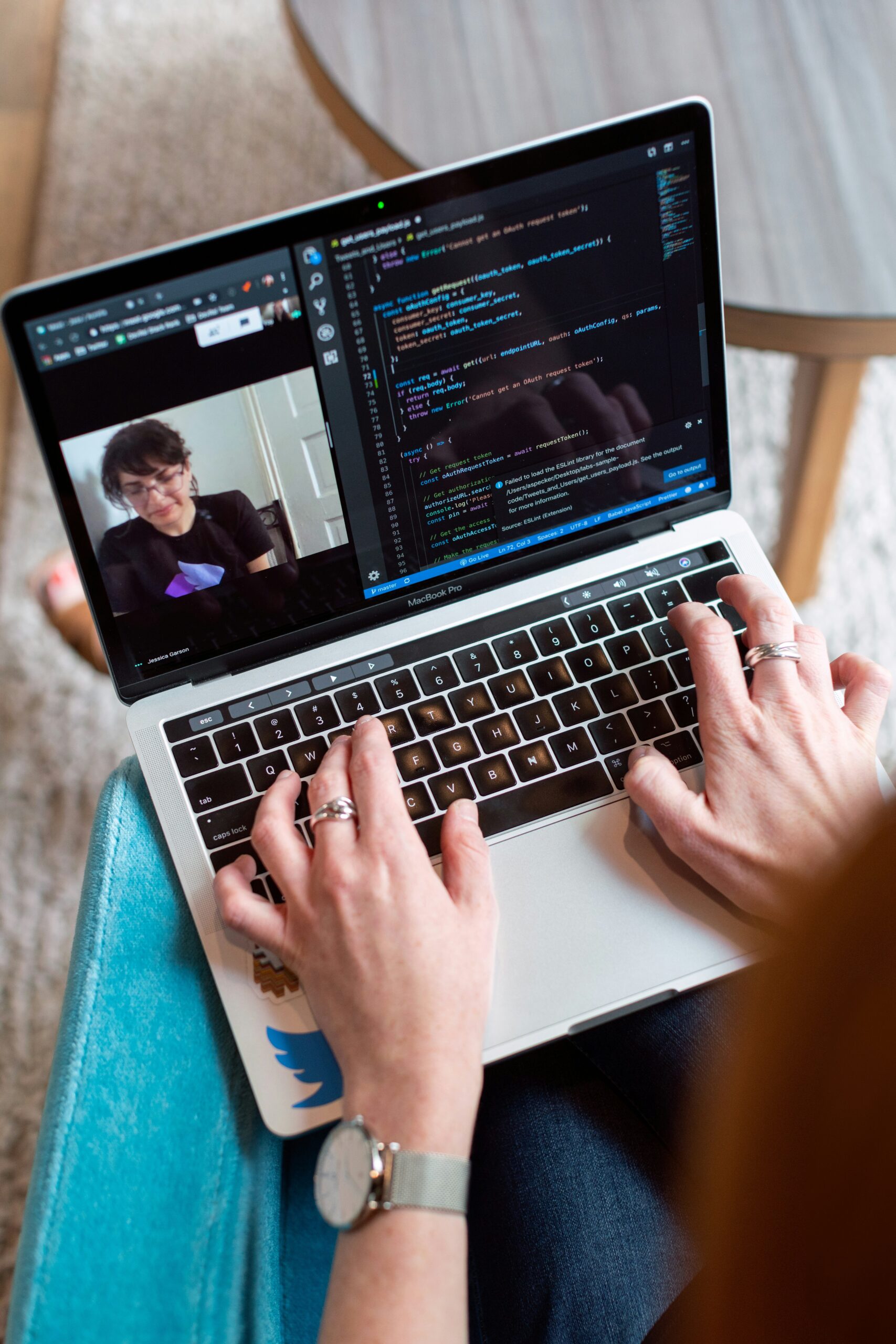Okay, let’s be real for a second—when most people think of software engineering, they picture a nerdy tech wizard hunched over a computer, typing code like a robot. It sounds boring, right? Maybe even a little too complicated, like some mysterious language only a handful of brainiacs can understand. But here’s the twist: software engineering is actually one of the most exciting, creative, and, yes, lucrative careers you can dive into. And it’s not nearly as complicated as you think—especially if you’re looking to work remotely.
In 2024, this career is not just about lines of code. It’s about creating things that impact millions of people—whether you’re building apps, websites, or even entire platforms that change the way we work, play, and interact. And the best part? You can break into it even if you have zero experience. Ready to see how? Let’s go!
Why Software Engineering is the Best-Paid Remote Job You’ve Never Thought About
- It’s in High Demand (And Always Will Be): Seriously, there will never be a shortage of tech jobs. As more industries shift to digital, companies need software engineers to keep their systems running smoothly, design apps, and build new technology. And guess what? You don’t have to be glued to an office desk to do it. Remote software engineering is thriving—giving you the freedom to work from anywhere.
- The Pay is Insane: We’re talking six figures if you stick with it. A junior developer can easily start at $60,000 or $70,000 per year, and with experience, you can earn well over $100,000—working from home or a beach in Bali. Doesn’t sound too bad, does it?
- It’s More Creative Than You Think: The stereotype of coding being a dry, robotic task? Outdated. Coding today is about problem-solving, creativity, and building cool stuff. Want to create the next big social app or a tool that helps people save time? You can do that as a software engineer. Plus, you’re always learning and adapting to new technologies, so it never gets boring.
- It’s Remote-Friendly by Nature: One of the reasons software engineering is such a great career for remote work is that it’s largely a solo activity that requires focus and quiet time. Collaboration is done online (tools like Slack, GitHub, and Jira make it seamless), so you can easily join the global remote workforce. If you’re craving the freedom of working from wherever you want, this is your ticket.
But How Do You Get There, Especially with Zero Experience?
Now that we’ve convinced you this isn’t as mind-numbing as it sounds, let’s break down how you can jump into the world of software engineering, even if you’re just starting from scratch. Spoiler: It’s easier than you think.
Step 1: Say Goodbye to the Boring Textbooks and Try Free Coding Resources
Forget about spending years in university or wading through complicated textbooks. You can get started with zero cost and a lot of fun. Here are a few great places to start learning to code:
- Codecademy: Dive right into interactive lessons that teach you everything from the basics of Python to building web applications. And it’s fun—you get to see your code in action, which is a total game-changer.
- freeCodeCamp: It’s exactly what it sounds like: a free platform that teaches you to code through hands-on projects. It’s a full curriculum with certifications you can add to your resume as you go.
- CS50x by Harvard on edX: Don’t let the Harvard name scare you. This course is for beginners and gives you a solid foundation in computer science without the boring jargon.
Start with these platforms and see if you vibe with coding. It’s like learning a new language, but way cooler than you think.
And if you’re looking for a more structured way to learn and dive deeper into software engineering, you might also want to check out the Freedom Seeker Plus library, where we’ve got resources and courses that can guide you every step of the way. Whether it’s honing your coding skills or understanding how to manage your freelance career as a software engineer, we’ve got you covered.
Step 2: Pick a Path That Makes You Excited
Software engineering isn’t just one thing. It’s a whole world of cool niches and specializations, and you get to choose the one that excites you most. Here are a few areas you can jump into:
- Web Development: This is perfect for beginners and super in-demand. If you’ve ever dreamed of building websites (or fixing the ones that annoy you), this is your chance. You can start with front-end development (the part people see) or back-end (the server side). Full-stack developers, who can do both, are the rockstars of the field.
- Mobile Development: Do you love apps? This could be your calling. With platforms like iOS (Swift) and Android (Java/Kotlin), mobile developers are creating the apps that keep us glued to our phones. And since most apps have remote teams, you could easily work from anywhere.
- Data Science: If you’re into numbers and analysis, data science is an awesome field that combines coding with data crunching. It’s in demand and can lead to some seriously high-paying roles. You’ll need Python (and some math chops), but it’s a fun way to work with data while having a major impact on businesses.
Step 3: Build Something—Anything!
Theory is one thing, but practice makes perfect. The best way to show you’re serious (and actually ready for a job) is to build projects. Here are some simple ideas to get you started:
- Your Personal Portfolio: Create a website to showcase your skills and projects. Not only does this serve as your resume, but it’s also a way to practice your web development skills.
- GitHub Projects: GitHub is where all the cool developers hang out. Start contributing to open-source projects or build your own. This will give you real-world experience and make you look like a total pro.
- Mini Apps: Build a to-do list app, a simple game, or even a weather app that pulls data from an API. The more projects you have, the stronger your portfolio will be.
Step 4: Don’t Just Learn—Network
Software engineering can feel like a solo activity, but trust us, the tech world is huge on collaboration. Get involved in the community:
- LinkedIn: Connect with industry professionals, follow influencers, and join groups that are focused on software engineering.
- Twitter: It’s where tech people tweet about their latest projects, tips, and trends. Follow and engage with them.
- Discord/Slack Groups: These platforms are filled with remote tech teams and communities where you can ask questions, share your progress, and get advice.
Networking isn’t just about getting a job; it’s about surrounding yourself with people who inspire and motivate you. Trust us, it helps.
Step 5: Apply for Entry-Level Jobs or Freelance Gigs
Once you’ve built up your portfolio and skills, start applying! Don’t stress about being “underqualified.” Many remote companies are looking for talent, not just experience. Apply for junior roles, internships, or freelance gigs on platforms like:
- Upwork: Start taking small coding jobs to build your client base.
- Remote Job Boards: Websites like We Work Remotely, Remote.co, and AngelList list remote software engineering jobs.
Your first gig might not be the dream job, but it’s a start—and every project you take on gets you closer to the freedom and flexibility you want.
Final Thoughts: Software Engineering Isn’t Boring, It’s Your Ticket to Remote Freedom
Here’s the truth: software engineering is one of the most flexible, high-paying remote jobs out there. It’s not as boring or complicated as people think. With a little dedication, the right resources, and some hands-on practice, you can go from zero to job-ready in no time.
Whether you want to create the next big app, solve data problems, or just work from anywhere in the world, software engineering opens up those doors. So, if you’re ready to leave behind the conventional 9-to-5 grind and step into a future that’s packed with opportunity, start learning to code today. And if you’re looking for a roadmap, check out the Freedom Seeker Plus library for curated resources and courses to help you turn your dream career into reality. The remote world is waiting for you!




